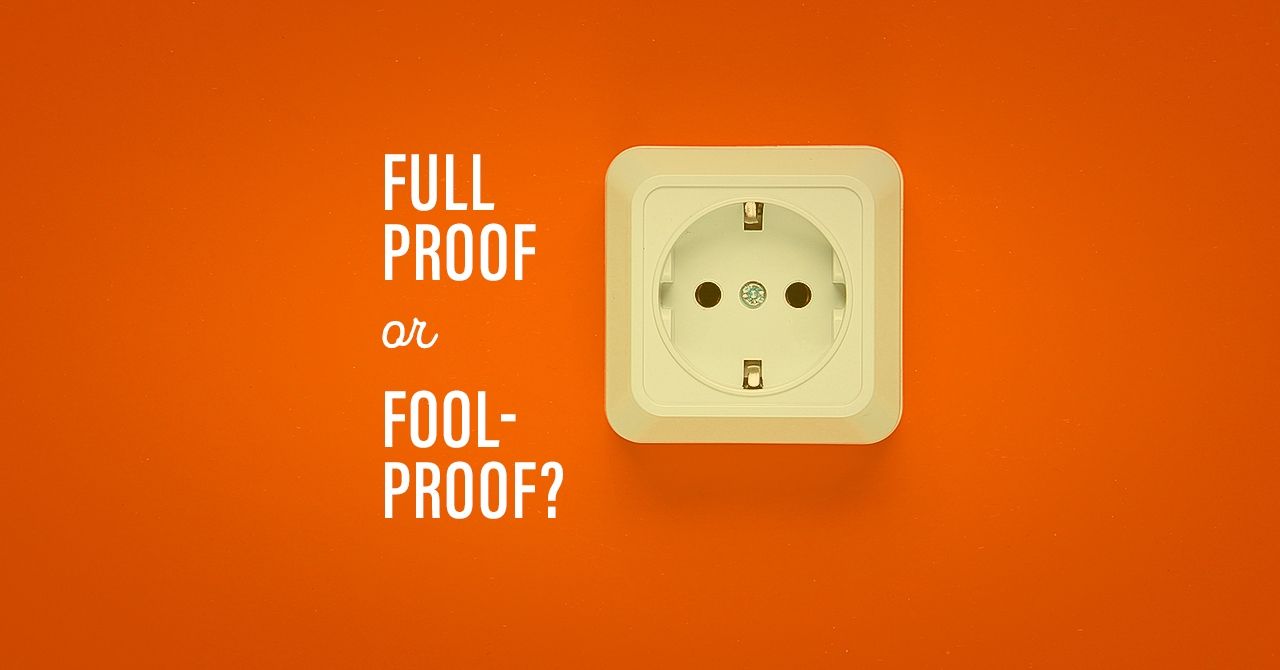
What is “Full-Proof”?
Most people are familiar with the definition of foolproof, but what about the full-proof?
A fool is a naive person, somebody who acts without sound judgment.
Proof means “withstand” or “vulnerable.”
When you combine these two words, you get foolproof, which means “involving no harm, or unable to fail”. So basically, something foolproof will still succeed even if a fool were involved.
Most people are familiar with the definition of foolproof, but what about the full-proof?
Full proof definition
If foolproof is generally considered the correct term, why would you ever need to say full-proof? One could argue that a “full-proof” idea is rigorously tested. In that case, the use of “proof” is similar to “proofreading.” As such, you could argue that the term full-proof means “free from error.”
From a logical standpoint, that makes sense, but it does not match the definition of foolproof.
You could also define full-proof through its use in the alcohol industry. The term is used to describe the level of alcohol by volume in a spirit.
Foolproof or full-proof?
If you are describing a plan that cannot fail, you use the term foolproof, like in the following example:
The captain’s ingenious plan was foolproof.
The coaches tactics were totally foolproof.
Bobby thought the bank heist idea was foolproof.
However, if you replaced foolproof with full-proof in any of the above sentences, they no longer carry the intended meaning.
And if you want to get creative and use both foolproof and full-proof in a sentence, you could say something like:
Drinking a whole barrel of full-proof vodka is a foolproof way to wind up in the hospital.
Hi! Mu name is Aneeca. I am a professional content writer, with over 13 years of experience in content writing. And I'm here to help you.

